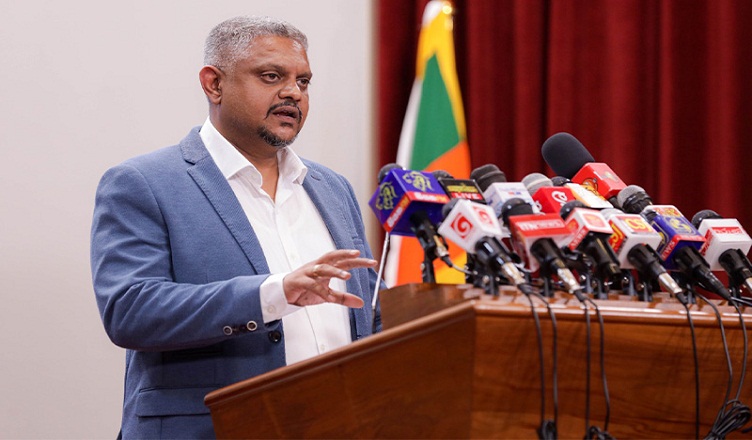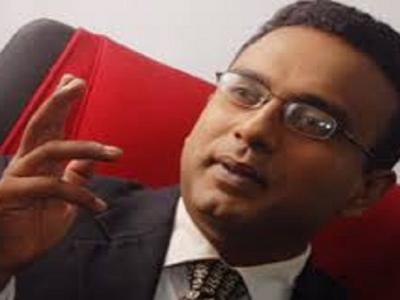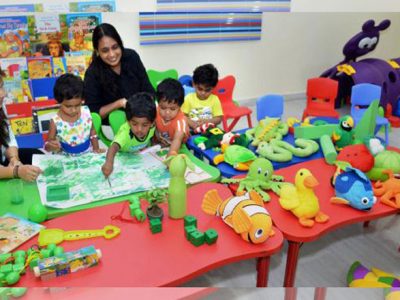(LANKAPUVATH | COLOMBO) – DIGIECON 2030 program aims to accelerate Sri Lanka’s economy towards an inclusive digital economy by leveraging advanced technology-based solutions State Minister of Technology Kanaka Herath said.
DIGIECON 2030 encompasses a digital master plan & regulatory policy framework, along with a series of annual events which will give direction and a gesture of the commitment of the Government towards facilitating a digital ecosystem, he further said.
As the first milestone, ‘DIGIECON 2023’, will take place from October to November 2023, which will unveil digital master plan and regulatory policy framework for the country up until 2030 in conjunction with a series of international conferences, symposiums, and exhibitions accelerating digital transformation and fueling ‘Digital Economy 2030’.
He expressed these views Yesterday (13) during a press conference themed ‘Collective Path to a Stable Country’ held at the Presidential Media Centre (PMC).
Meanwhile, the procurement process of Indo-Sri Lanka Joint Project for the Sri Lanka Unique Digital Identity Project (SL-UDI) has commenced, State Minister of Technology Kanaka Herath announced.
The project commenced with the signing of a MoU between Sri Lanka and India on 28.03.2022 and an Indo-Sri Lanka Joint Project Monitoring Committee (JPMC) for the Sri Lanka Unique Digital Identity Project (SL-UDI) was introduced.
The Government of India is overseeing the software development for the Sri Lanka Unique Digital Identity Project (SL-UDI). The Indian government has agreed to contribute 300 million Indian Rupees for this cause. As a result, major automated biometric systems and other software systems will be installed with the Information and Communication Technology Agency of Sri Lanka’s full supervision and consultation (ICTA).
The technological knowledge needed in preparing a Digital ID will be provided by ICTA and PricewaterhouseCoopers (PwC) Lanka.
Meanwhile, with the assistance of the Ministry of Education, the Ministry of Technology plans to launch a six-month IT course for Arts undergraduates who are interested in the subject and wish to fill the gap in the IT field. The curriculum will be created in accordance with suggestions made by subject-matter specialists.
With the launch of SL-UDI project, every citizen in the country will get a unique number.
The project aims to collect biographic and biometric information, including facial, iris, and fingerprint data, which will be stored in a centralized system for the purpose of issuing identification cards as per the standards set by the International Civil Aviation Organization (ICAO).
Under the first phase the project will be launched by the ICTA under the Supervision of Technology Ministry.
With the implementation of the project, more effective and efficient delivery of government services, poverty reduction and welfare programs; financial inclusion through better access to banking and other products/services, minimization of corruption, will be ensured.




